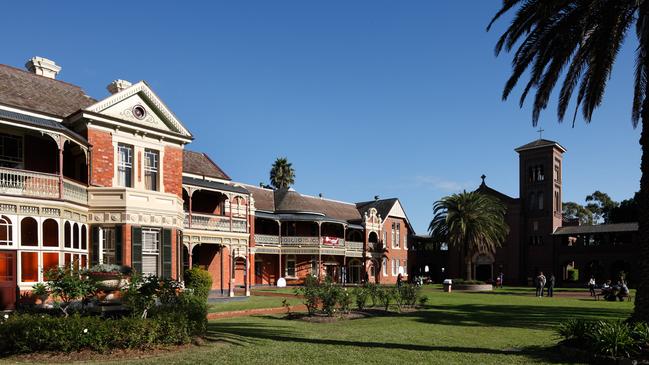Embattled Australian Catholic University under investigation from nation’s higher education regulator
The Australian Catholic University is facing a compliance probe from the nation’s higher education regulator over ‘management and governance issues’ that, if proven, could result in sanctions or jeopardise its registration.

The Australian Catholic University is facing a compliance probe from the nation’s higher education regulator over “management and governance issues” at the institution that, if proven, could result in sanctions or jeopardise its registration as a tertiary provider.
In a letter sent to the vice-chancellor, Zlatko Skrbis, last Friday, the Tertiary Education Quality Standards Agency announced a “compliance assessment” of ACU following numerous concerns raised in relation to its leadership and the conduct of its decision-making bodies.
“TEQSA is concerned ACU’s senate and other oversight bodies may not have fulfilled the obligation to exercise competent governance oversight of, and be accountable for, all ACU’s operations,” wrote TEQSA’s chief executive Mary Russell.
“This will be relevant to the upcoming assessment of ACU’s application for reregistration.”
The announcement of a compliance assessment caps a tumultuous year for ACU. In addition to staff purges and a decline in its financial performance, the institution has faced rolling scandals that have included the sudden terminations of its chief operating officer and its dean of law. Questions have also been raised by leading Australian religious figures over the university’s ongoing commitment to its Catholic identity.

Dr Russell’s letter outlined a summary of concerns she said could “compromise ACU’s capacity to maintain its compliance” with the regulator’s threshold standards.
ACU has been requested to provide a written response in its defence by January 27.
Failure to meet these standards, the TEQSA website says, can result in minor penalties ranging from a warning letter or a voluntary undertaking to more punitive measures such as cancelling a university’s registration or civil and criminal penalties.
“Major operational decisions do not appear to adhere to established delegations or approval procedure (sic) or are sufficiently informed,” the letter said. “In TEQSA’s view, this may have resulted in a lack of alignment between operations and ACU’s strategic and operational planning and fiscal sustainability.”
TEQSA’s elevated interested in ACU’s governance follows a decision by ACU leaders this month to fast-track the reappointment of Mr Skrbis to another five-year term as vice-chancellor. Mr Skrbis’s contract was due to expire in 2026; detractors had been pushing for renewal at the university.

Among those lamenting the loss of ACU’s Catholic identity was Sydney Archbishop Anthony Fisher, who raised the issue in an extraordinary letter to ACU pro-chancellor Virginia Bourke.
Archbishop Fisher named the university’s confused response to a speech delivered by former union leader Joe de Bruyn at a graduation ceremony in October as the reason for writing the letter.
ACU did not address the substance of the TEQSA letter or concerns raised about compliance when contacted by The Australian this week, a spokeswoman responding: “ACU is in the process of renewal of registration and has been in communication with TEQSA. The university has no outstanding actions from the regulator.”
TEQSA says compliance assessments are undertaken only when a concern warrants further consideration, and when there is “a reasonable basis” for noncompliance with the threshold standards.
In its summary of concerns, TEQSA noted “significant operational and personnel decisions” at ACU that may have been made in contravention of procedures and delegations.
It cited the sudden termination this year of COO Stephen Weller, saying that decision may have been made “without senate standing committee approval, as required under its delegations of authority, and without reporting it to its senate”.
TEQSA also pointed to a July 12 article published in The Australian’s Margin Call business column revealing that ACU’s dean of law, Kate Galloway, was terminated over her pro-abortion views.
To compensate for the loss of her job, ACU agreed to pay Professor Galloway more than $1m and reassign her to a newly created role.
Among additional concerns raised were those relating to the institution’s financial management. TEQSA noted ACU recorded an operating surplus of $56m in 2021 and had a $35.7m deficit in 2023.
It also cited the abrupt closure of ACU’s Dianoia Institute of Philosophy and the Institute for Humanities and Social Sciences.




